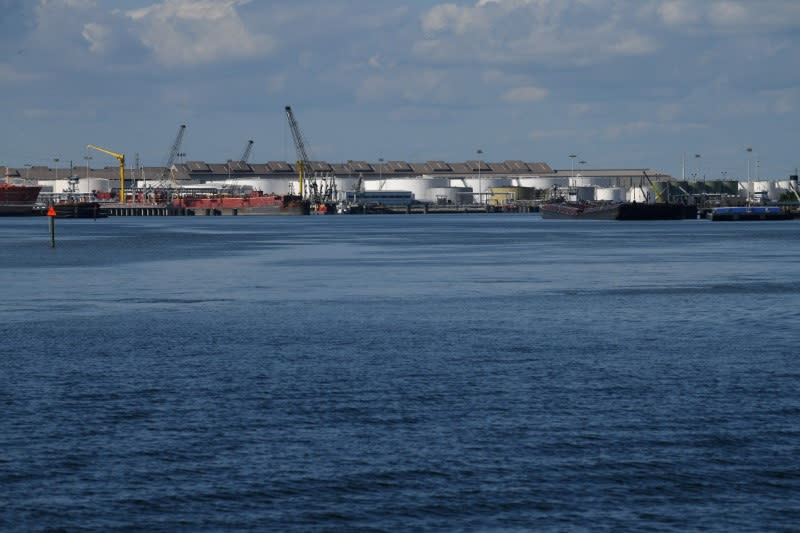Early US imports lessen risk from potential seaport strike, economist says

By Lisa Baertlein
LOS ANGELES (Reuters) - U.S. retailers' early back-to-school, Halloween and Christmas holiday imports could lessen cargo delays and financial damage should workers at vital seaports such as New York and Houston strike in October, a trade economist said on Tuesday.
The International Longshoremen's Association represents 45,000 dockworkers at three dozen U.S. ports from Maine to Texas and handle half of the nation's ocean trade. The ILA and employers represented by United States Maritime Alliance (USMX) are at odds over issues ranging from automation to wages.
"Retailers are concerned by the possibility of a strike at ports on the East and Gulf coasts because contract talks have stalled," said Jonathan Gold, vice president of supply chain and customs policy at the National Retail Federation.
Those seaports handle roughly half of U.S. container imports, and any strike or slowdowns would hit ahead of the U.S. presidential election.
The ILA said it has scheduled a meeting to prepare for a potential strike if a new agreement is not in place by Sept. 30. USMX said in a statement it is ready to return to bargaining.
Companies such as Walmart, Target, Home Depot and Amazon.com, started importing laptops, Halloween costumes and toys during the spring. Typically, such holiday-related imports land at U.S. ports between August and October.
In July, U.S. container freight imports climbed 14% year-over-year, according to S&P Global Market Intelligence. That marked the third-highest monthly level for U.S. container imports, according to supply-chain-software provider Descartes Systems Group.
Such planning has "absolutely" mitigated risk from a potential port strike, S&P Global economist Paul Bingham said.
The import acceleration also aims to avoid shipping disruptions, from Houthi rebel attacks on commercial vessels near the Red Sea, drought-related restrictions on the Panama Canal and elevated hurricane risks, S&P said. The ocean shipping industry handles 80% of global trade.
The chances of a strike are low, Bingham said.
"In an election year, political pressures will be extreme on both sides to negotiate a settlement," he said.
Should a short strike occur, the financial impact would be limited because shippers are accustomed to adjusting for risk, said Patrick Anderson, CEO of Michigan-based Anderson Economic Group.
"If you're relying on specific things that are on those ships, it will affect you. But for much of America, a brief shutdown won't affect them," Anderson said.
(Reporting by Lisa Baertlein in Los Angeles; Editing by Rod Nickel)